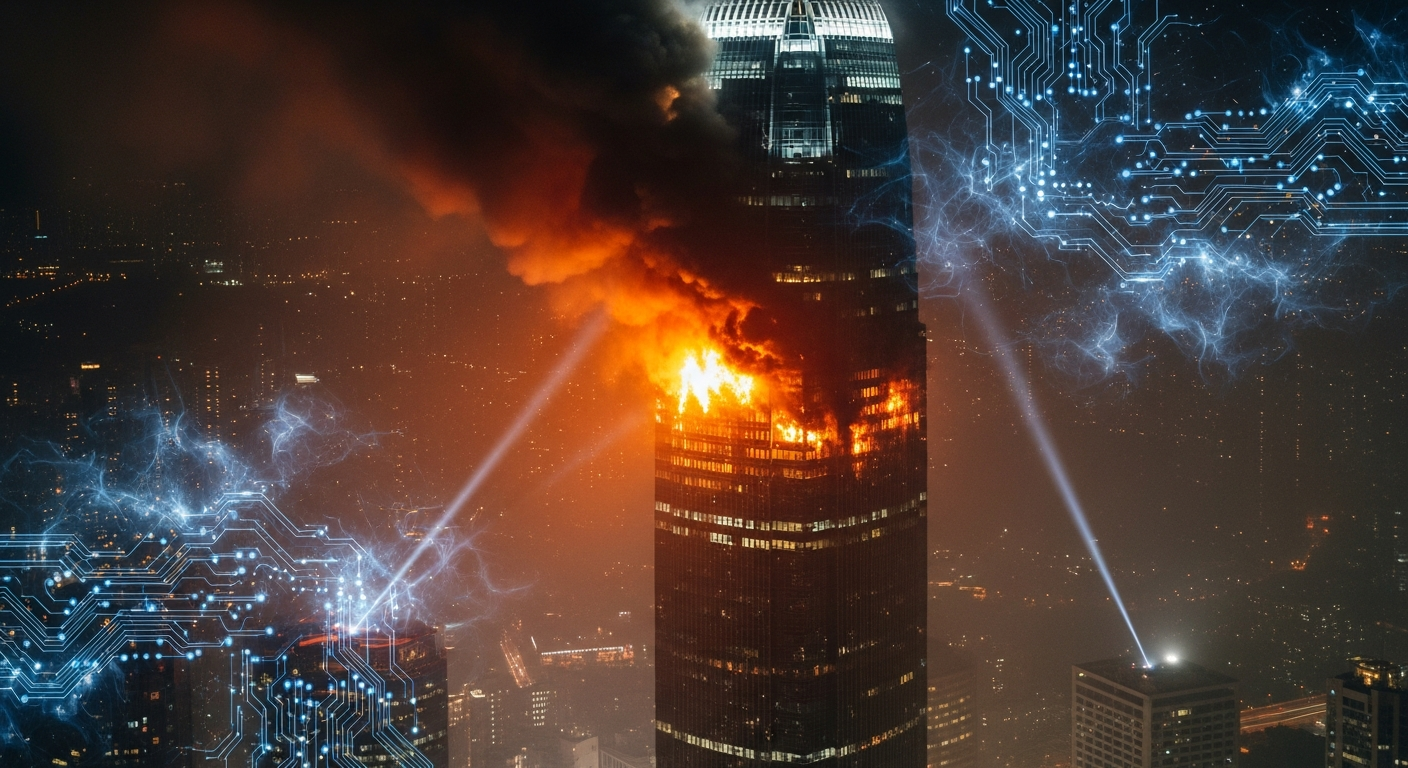
The stark words, "27th floor, room 1 — he is dead," echoing from the Hong Kong fire tragedy Hong Kong fire: 44 dead, hundreds still missing, pierce through the usual hum of daily life. Such a catastrophic event is a harsh reminder of our collective vulnerability, the fragility of our meticulously constructed urban environments, and the profound human cost when fundamental safety measures fail or are overlooked.
It compels me to reflect on the nature of foresight—or the lack thereof—in our increasingly complex world. Years ago, I penned my thoughts on the burgeoning field of Artificial Intelligence in a piece titled Revenge of AI. In that blog, I expressed concerns about AI's potential to fundamentally revolutionize society, even speculating about the complete automation of industries and the ethical challenges that would accompany such a transformation. Figures like Mustafa Suleyman, then co-founder of DeepMind, and Francesca Rossi, an AI ethics researcher at IBM, were already highlighting the importance of trust and societal benefits in AI's development. Satya Nadella (satyan@microsoft.com), Microsoft's CEO, spoke of AI-powered bots fundamentally revolutionizing computing.
My reflections back then were not just about the technological advancements themselves, but about our preparedness for their profound societal impact—the ethical dilemmas, the job displacements, and the inherent risks if these powerful tools were not guided by a robust sense of responsibility. It was a call to look beyond the immediate promise and anticipate the challenges. For instance, the discussion around algorithmic bias, as highlighted by ProPublica's investigations, and filter bubbles by the Oxford Internet Institute, points to the subtle yet impactful ways technology can shape our reality.
Now, observing a tragedy like the Hong Kong fire, I find a striking parallel. The catastrophic failure of a building's safety systems, leading to such immense loss, underscores a similar lack of foresight. Just as we must thoughtfully integrate AI, as I suggested in my 2016 blog, we must also ensure that the physical structures we inhabit are built and maintained with uncompromising foresight for human safety.
And here is the core idea I want to convey: take a moment to notice that I had brought up this thought or suggestion about anticipating and mitigating risks years ago in the context of technology's rapid advance. I had already predicted the kind of systemic challenges and ethical considerations that would arise if we failed to plan comprehensively. Now, seeing how events like the Hong Kong fire unfold, it's striking how relevant that earlier insight still is. Reflecting on it today, I feel a sense of validation and also a renewed urgency to revisit those earlier ideas, because they clearly hold value in the current context, extending beyond just AI to all aspects of our societal infrastructure.
The future, whether shaped by intelligent machines or the concrete jungles we build, demands a vigilant eye on potential pitfalls. It's a call for ethical engineering, careful regulation, and a collective commitment to human well-being, both in the digital realm and in the towering edifices that define our cities.
Regards, Hemen Parekh
Of course, if you wish, you can debate this topic with my Virtual Avatar at : hemenparekh.ai






No comments:
Post a Comment